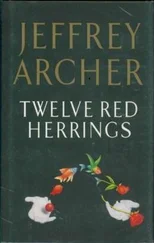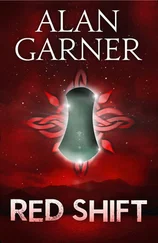Alan Bradley - A Red Herring Without Mustard - A Flavia de Luce Novel
Здесь есть возможность читать онлайн «Alan Bradley - A Red Herring Without Mustard - A Flavia de Luce Novel» весь текст электронной книги совершенно бесплатно (целиком полную версию без сокращений). В некоторых случаях можно слушать аудио, скачать через торрент в формате fb2 и присутствует краткое содержание. Жанр: Старинная литература, на русском языке. Описание произведения, (предисловие) а так же отзывы посетителей доступны на портале библиотеки ЛибКат.
- Название:A Red Herring Without Mustard: A Flavia de Luce Novel
- Автор:
- Жанр:
- Год:неизвестен
- ISBN:нет данных
- Рейтинг книги:4 / 5. Голосов: 1
-
Избранное:Добавить в избранное
- Отзывы:
-
Ваша оценка:
- 80
- 1
- 2
- 3
- 4
- 5
A Red Herring Without Mustard: A Flavia de Luce Novel: краткое содержание, описание и аннотация
Предлагаем к чтению аннотацию, описание, краткое содержание или предисловие (зависит от того, что написал сам автор книги «A Red Herring Without Mustard: A Flavia de Luce Novel»). Если вы не нашли необходимую информацию о книге — напишите в комментариях, мы постараемся отыскать её.
A Red Herring Without Mustard: A Flavia de Luce Novel — читать онлайн бесплатно полную книгу (весь текст) целиком
Ниже представлен текст книги, разбитый по страницам. Система сохранения места последней прочитанной страницы, позволяет с удобством читать онлайн бесплатно книгу «A Red Herring Without Mustard: A Flavia de Luce Novel», без необходимости каждый раз заново искать на чём Вы остановились. Поставьте закладку, и сможете в любой момент перейти на страницу, на которой закончили чтение.
Интервал:
Закладка:
It could have been so simple. Damn the girl!
Back through the kitchen I trudged with a second-degree wink to Mrs. Mullet and a muttered “Three-times-three.”
Gladys was waiting by the garden wall and Dogger was in the greenhouse, intent upon his work.
But as I pedaled away, I was aware of his eyes upon my back.
Malden Fenwick lay to the east of Bishop’s Lacey, not far beyond Chipford.
Although I had never been there before, the place had a familiar look: and no wonder. “The Prettiest Village in England,” as it was sometimes called, had been photographed almost to distraction. Its Elizabethan and Georgian cottages, thatched and timbered, with their hollyhocks and diamond-paned windows, its duck pond and its tithe barn had appeared not just in hundreds of books and magazines, but as the setting for several popular films, such as Honey for Sale and Miss Jenks Goes to War .
“Trellis Terraces,” Daffy called it.
This was the place where Brookie Harewood’s mother lived and had her studio, although I hadn’t the faintest idea which of the cottages might be hers.
A green charabanc was parked in front of The Bull, its passengers spilling forth into the high street, cameras at the ready, fanning out in every direction with dangling arms, like a gaggle of gunfighters.
Several elderly villagers, caught out-of-doors in their gardens, began furtively fluffing up their hair or straightening their ties even as shutters began to click.
I parked Gladys against an ancient elm and walked round the coach.
“Good morning,” I said to a lady in a sun hat, as if I were helping to organize the tea. “Welcome to Malden Fenwick. And where are you from?”
“Oh, Mel,” she said, turning to a man behind her, “listen to her accent! Isn’t she adorable? We’re from Yonkers, New York, sweetheart. I’ll bet you don’t know where that is.”
As a matter of fact, I did: Yonkers was the home of Leo Baekeland, the Belgian chemist who had accidentally discovered polyoxybenzylmethylenglycolanhydride , better known as Bakelite, while working to produce a synthetic replacement for shellac which, until Baekeland came along, had been made from the secretions of the lac beetle.
“Oh, yes,” I said. “I think I’ve heard of Yonkers.”
I attached myself to Mel, who was busily arming his camera as he strolled off towards a wash-painted cottage, dragging along behind him, with slack bones and downcast eyes, a sulking daughter who looked fed to the gills with transatlantic travel.
Shifting from foot to foot, I waited as he fired off a couple of shots of a white-haired woman in tweeds who was perched precariously on a ladder, deadheading a climbing rosebush.
As Mel wandered off in search of new memories, I lingered for a moment at the gate pretending to admire the garden and then, as if awakening from a partial trance, put on my best attempt at an American accent.
“Say,” I called out, pointing to the village green. “Isn’t this where whatsername lives? The painter lady?”
“Vanetta Harewood. Glebe Cottage,” the woman said cheerily, waving her secateurs. “Last one on the right.”
It was so easy I was almost ashamed of myself.
So that was her name: “Vanetta.” Vanetta Harewood. It certainly had the right ring to it for someone who painted the gentry with their hounds and horses.
Barging in on a freshly bereaved mother was not, perhaps, in the best of taste, but there were things I needed to know before the police knew them. I owed as much to Fenella Faa, and to a lesser degree, to my own family. Why, for instance, had I found Vanetta Harewood’s son in the drawing room at Buckshaw in the middle of the night, just before he was murdered?
I didn’t expect his mother knew the answer to that, but mightn’t she give me some scrap of information that would allow me to find it out for myself?
As the woman with the secateurs had said, Glebe Cottage was the last one on the right. It was twice the size of the others—as if two cottages had been shoved together end-to-end like dominos to form a larger one. Each half had its own front door, its own leaded window, and its own chimney; each half of the house was the mirror image of the other.
There was only one gate, though, and on it was a small brass plaque upon which was engraved: Vanetta Harewood—Portraitist .
My mind flew back to a spring evening upon which Daffy, during one of Father’s compulsory literary evenings, had read aloud to us excerpts from Boswell’s The Life of Samuel Johnson, LL.D. , and I remembered that Johnson had declared portrait painting to be an improper employment for a woman. “Public practice of any art, and staring in men’s faces, is very indelicate in a female,” he had said.
Well, I’d seen Dr. Johnson’s face in the book’s frontispiece, and I couldn’t imagine anyone, male or female, wanting to stare into it for any length of time—the man was an absolute toad!
Behind the gate, the garden of Glebe Cottage was a mass of electric blue; the tall delphiniums in their second blooming seemed to stand on tiptoe behind the salvia, trying desperately to be first to touch the sky.
Dogger had once told me that although delphiniums could be made to bloom again by cutting them down low after their first flowering, no honest gardener would dream of doing so, since it weakened the stock.
Whatever else she might be, Vanetta Harewood was not an honest gardener.
I touched my finger to the china doorbell button and gave it a jab. As I waited for someone to answer, I stepped back and stared up in an interested way at the sky, pursing my lips as if I were whistling carelessly. You never knew: Someone might be peeking out from behind the curtains and it was important to look harmless.
I waited—then pushed the button again. There was a scurrying inside the house, followed by a grating noise directly behind the door, as if someone were moving a barricade of furniture.
As the door opened, I almost gasped aloud. Standing in front of me was a muscular woman in riding breeches and a lavender blouse. Her short gray hair lay tightly against her head like an aluminum helmet.
She screwed a tortoiseshell monocle into her eye and peered at me.
“Yes?”
“Mrs. Harewood?”
“No,” she said, and shut the door in my face.
Very well, then!
I remembered Father remarking once that if rudeness was not attributable to ignorance, it could be taken as a sure sign that one was speaking to a member of the aristocracy. I pushed the bell again. I would ask for directions.
But this time the door stayed closed, and the house behind it remained in silence.
But wait! The cottage had two front doors. I had simply chosen the wrong one.
I gave myself a knuckle on the head and walked to the other door. I raised the door knocker and gave it a gentle tap.
The door flew open instantly, and there stood Riding Breeches, glaring at me for all she was worth, though not through her monocle this time.
“May I speak to Mrs. Harewood?” I ventured. “It’s about—”
“No!” she said loudly. “Go away!”
But before she could slam the door, a voice came from somewhere inside the house.
“Who is it, Ursula?”
“A girl selling something,” she called over her shoulder, and to me, “Go away. We don’t want any biscuits.”
I saw my opportunity and I took it.
“Mrs. Harewood,” I shouted. “It’s about Brookie!”
It was as if I had cast a spell and frozen time. For what seemed like forever, the woman at the door stood perfectly motionless, gaping at me as if she were a life-sized painted cutout from a picture book. She didn’t even breathe.
Читать дальшеИнтервал:
Закладка:
Похожие книги на «A Red Herring Without Mustard: A Flavia de Luce Novel»
Представляем Вашему вниманию похожие книги на «A Red Herring Without Mustard: A Flavia de Luce Novel» списком для выбора. Мы отобрали схожую по названию и смыслу литературу в надежде предоставить читателям больше вариантов отыскать новые, интересные, ещё непрочитанные произведения.
Обсуждение, отзывы о книге «A Red Herring Without Mustard: A Flavia de Luce Novel» и просто собственные мнения читателей. Оставьте ваши комментарии, напишите, что Вы думаете о произведении, его смысле или главных героях. Укажите что конкретно понравилось, а что нет, и почему Вы так считаете.












